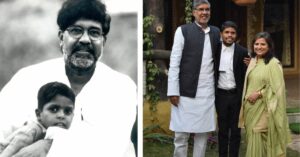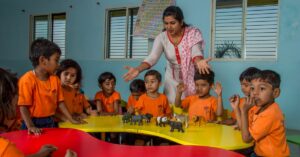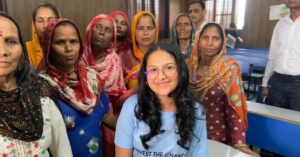Grandma’s Struggles Makes Teenager Craft a Device To Aid Dementia Patients
Looking for monitors for elderly with dementia? Hemesh Chadalavada from Hyderabad has created Alpha Monitor, a wearable device that helps caregivers monitor patients with dementia and Alzheimer's.
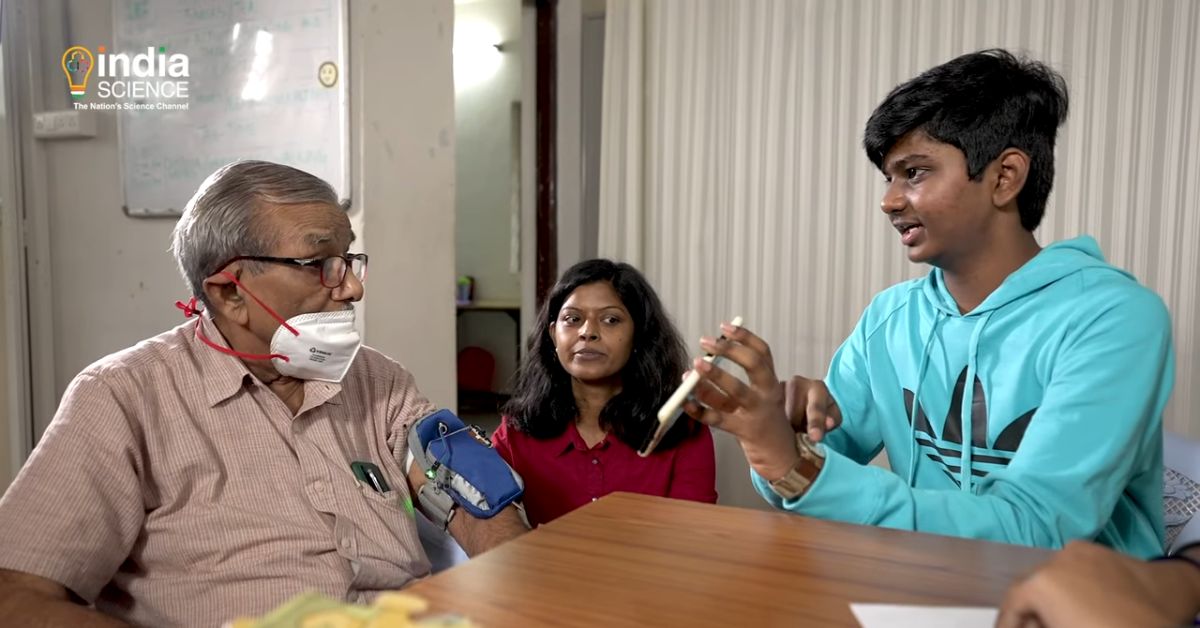
Feature Image Courtesy Hemesh Chadalavada
Sometime in 2018, Hemesh Chadalavada was at his grandmother’s house watching TV at 2 am. He suddenly heard some movement in the kitchen and saw his grandmother make some tea for herself. After she left, he entered the kitchen and saw that she had forgotten to turn the gas off.
Earlier that year, she was diagnosed with Alzheimer’s disease, a common cause of dementia, characterised by memory loss and other cognitive abilities. Hemesh, who was just 12 at the time, was shocked by this, and was plagued by the thought of what would have happened if they hadn’t been visiting her.
According to the teen, she would also wander off, and had to be brought back by family and friends in the area. But what would happen if she fell at home and needed immediate assistance? Hemesh didn’t find anything in the market to assist in such emergencies.
The young innovator decided to take matters into his own hands and set out to create a smart device that would alert dementia patients’ caregivers. Starting in the summer of 2019, he created the Alpha Monitor, a simple watch-like wearable device that monitors patients and provides alerts if the patient falls down, wanders away or in other cases of an accident.
The youngster has, since then, received several awards including the Pradhan Mantri Rashtriya Bal Shakti Puraskar Award in 2021 and the Samsung Solve for Tomorrow, wherein he, , chosen amongst 18,000 students, received a Rs 1 crore grant for his project.
How did this 17-year-old create a smart solution for monitoring dementia patients — almost 8.8 million in India — according to the Alzheimer’s Association?
Finding solutions using the internet
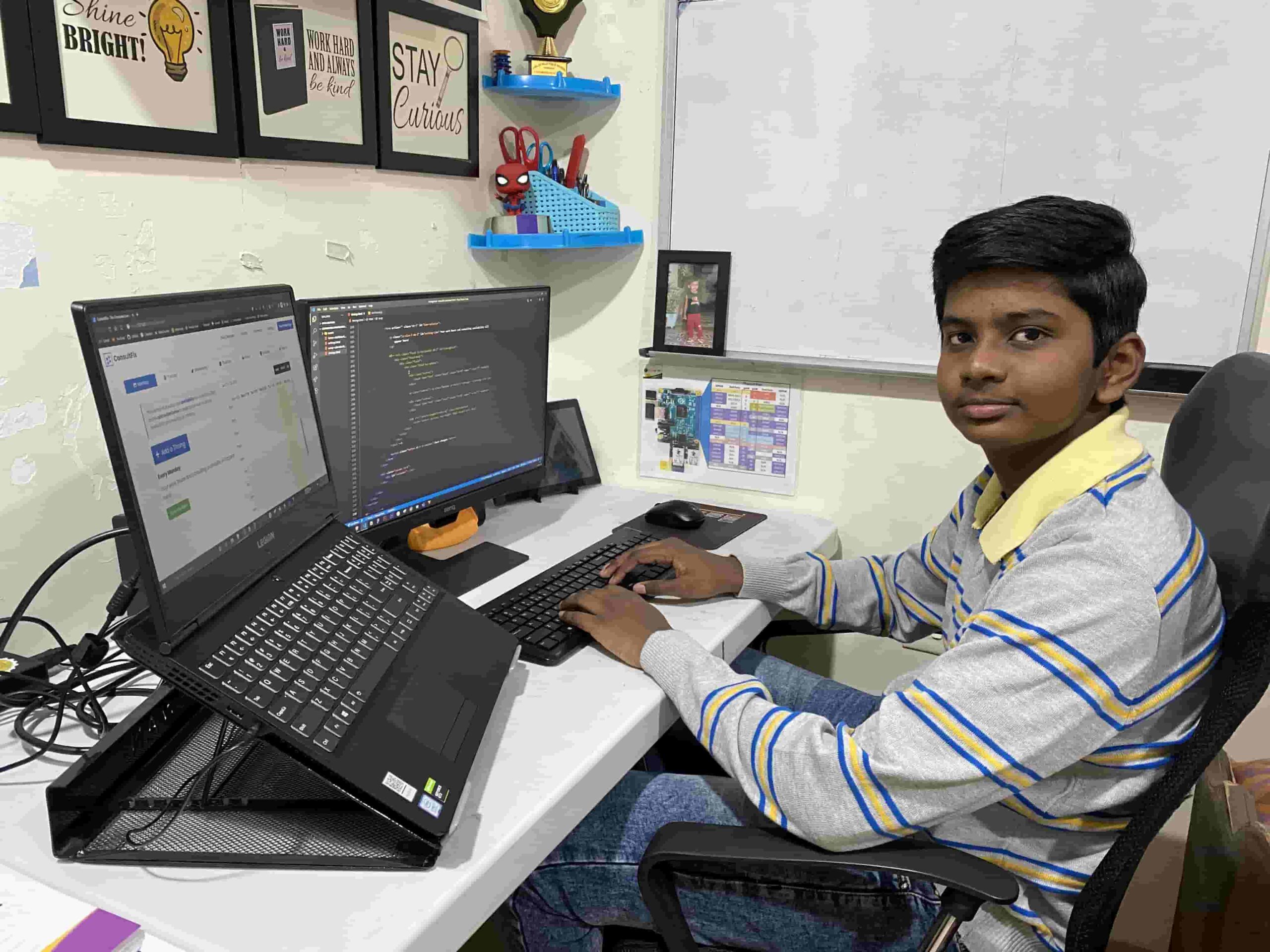
Hemesh first started off with an interest in arts and crafts and spent his time creating “cool and simple” projects. Soon, while googling ways to make better projects, he stumbled upon videos on robotics and electronics, realising that the internet was a great way to learn complex concepts too.
He spent many hours looking at Youtube videos on robotics, electronics and more, by teachers like Paul McWhorter, a high school teacher who posts videos on robotics, and would google all his doubts and connect with professors online.
The first project he made was a remote control car and soon started building solutions for the people around him like finding ways to beat the Indian heat. The Hyderabad boy used to spend hours playing cricket with his friends every summer. He wanted to create a heat management device that could alert them if they were spending too much time in the sun to prevent heat strokes.
“I created a cap that monitors your body and external temperature, along with the time you’ve been playing. If you’ve been playing for too long, or your body temperature is rising constantly, it gives you an alert to relax. The other device, a sprinkler, then sprays water to cool you down,” Hemesh told The Better India.
He continued making products like a fan which turns on when the weather is hot, a device that heats your lunch, a robot, a weather station, before he embarked on the biggest innovation of all which could help dementia patients across the world.
In the summer of 2019, he started working on the Alpha Monitor.
An alarm for your loved one with dementia
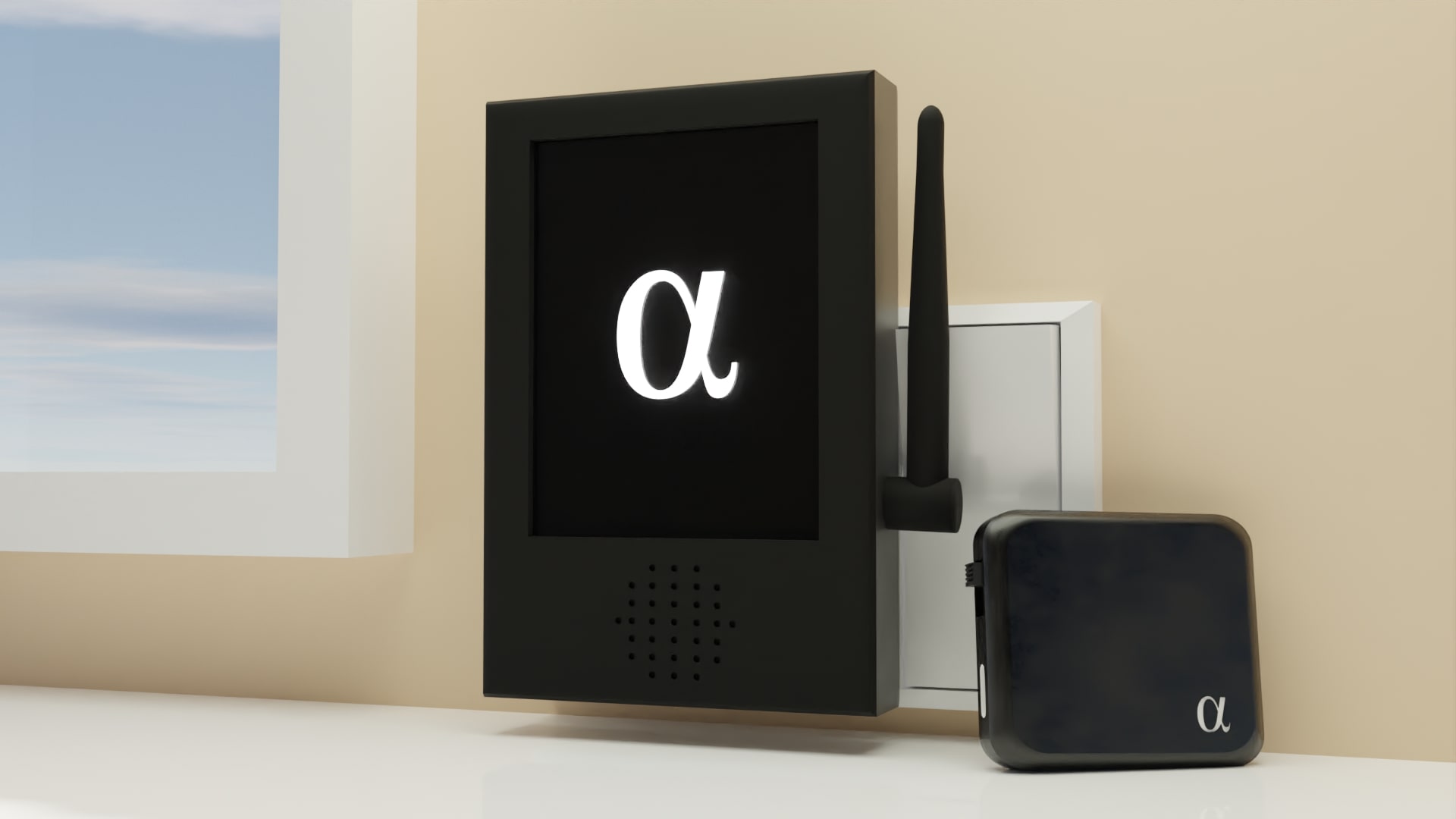
What triggered Hemesh to find a solution was seeing the gradual deterioration of his grandmother, a retired government officer.
“I always knew her as a strong woman. Slowly, I saw her lose control of her mind and body, which was very painful to watch. She didn’t know what she was doing, was unable to recognise us and was at risk of frequent accidents. I just wanted to create a device that would alert us during any change of movement, if she fell down, or got up in the middle of the night, or went out of the house,” adds the 17-year-old.
He started creating this device with whatever was at home, with the help of his mentor, the internet.
“The first prototype I built was a huge box. I learnt how to make a sleek wearable device on the internet by learning which components to use and where I could source them in Hyderabad. I started with a hardware device, after which I learnt coding online and moved to machine learning and data science, to help me perfect my device,” he adds.
After almost 20 prototypes, and a lot of fine tuning, the Alpha Monitor was born.
How it works
The Alpha Monitor has two parts, one, a wearable watch-like device, and the second, an alarm which connects to it. The wearable device is completely customisable according to the requirements of the patient.
“You strap on the device on the patient. In case the patient throws it away or doesnt like wearing it, you can just put it in a bag and fix it in their pocket or sock or wherever you like. Once you plug in the alarm, you will be alerted for every tiny change in movement. As soon as the patient gets up or wanders away, it will alert the family members with a huge alarm sound,” says Hemesh.
The wearable device monitors body temperature, pulse, detects posture and movement, falls and more. It works using a gyroscope sensor to detect even the slightest movement and health sensors for pulse and temperature. It works without Wifi or bluetooth and has a range of 1- 2 km, according to Hemesh. It can also be connected to an app for children staying far away to monitor their parents movements.
Once the prototype was ready, the innovator started working with the Alzheimer’s & Related Disorders Society of India (ARDSI) to test, modify the product and gain insights.
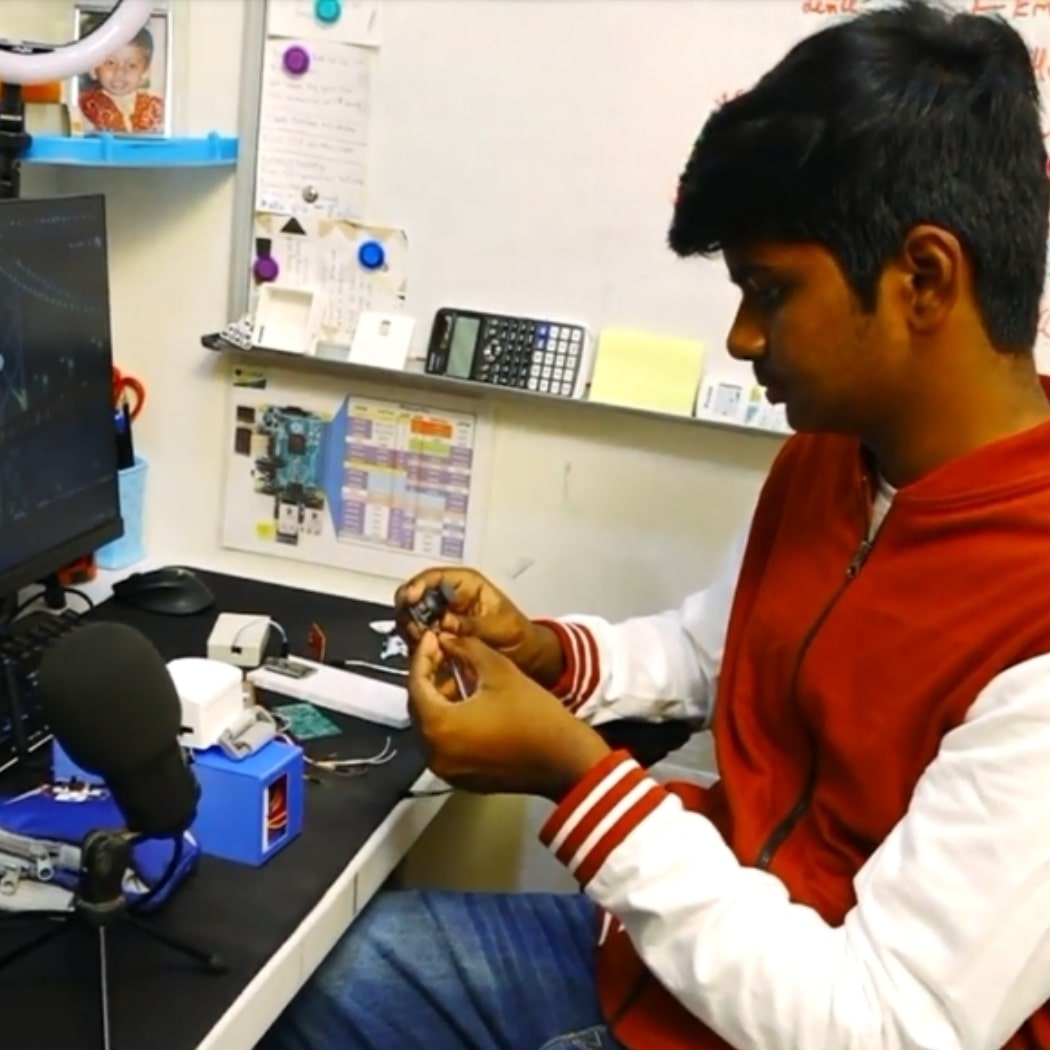
He has been bestowed with several awards and grants, but the biggest award, he says, is seeing the device in action.
“The happiest I’ve ever been is seeing how the device actually works for patients with Alzheimer’s. The reaction of the family when they realise the utility of the device is beyond any award. It gives me incredible happiness to see the small impact I’ve managed to create in the lives of these families,” smiles the youngster.
The Class 12 student hopes to get the product up and running in the next six months, after his Board exams. He plans to pursue a degree in robotics while continuing research on dementia care.
“I started with a goal of creating impact and solving problems for the people around me. Now, I want to create solutions for Alzheimer’s and take India to the forefront of dementia care,” he says.
Besides the Alpha Monitor, he has also created Universis, an AI college counsellor and essay review app, CreatoWise, which helps you grow your Youtube channel, and SessionFix, a platform for hosting paid seminars and courses online.
Hemesh is a classic example of how the abundant information available on the internet can be utilised for creating positive change and impact.
“You have to put the knowledge on the internet to good use. People are addicted to short form content, TikTok, reels. People like me use the internet to learn and understand concepts. It’s a vast ocean of information that is helpful for anyone like me who is passionate about learning and creating change,” says Hemesh.
He shows us that with the right use of the internet, one can use the vast information available there at our disposal to change the world.
Edited by Padmashree Pande
If you found our stories insightful, informative, or even just enjoyable, we invite you to consider making a voluntary payment to support the work we do at The Better India. Your contribution helps us continue producing quality content that educates, inspires, and drives positive change.
Choose one of the payment options below for your contribution-
By paying for the stories you value, you directly contribute to sustaining our efforts focused on making a difference in the world. Together, let's ensure that impactful stories continue to be told and shared, enriching lives and communities alike.
Thank you for your support. Here are some frequently asked questions you might find helpful to know why you are contributing?






